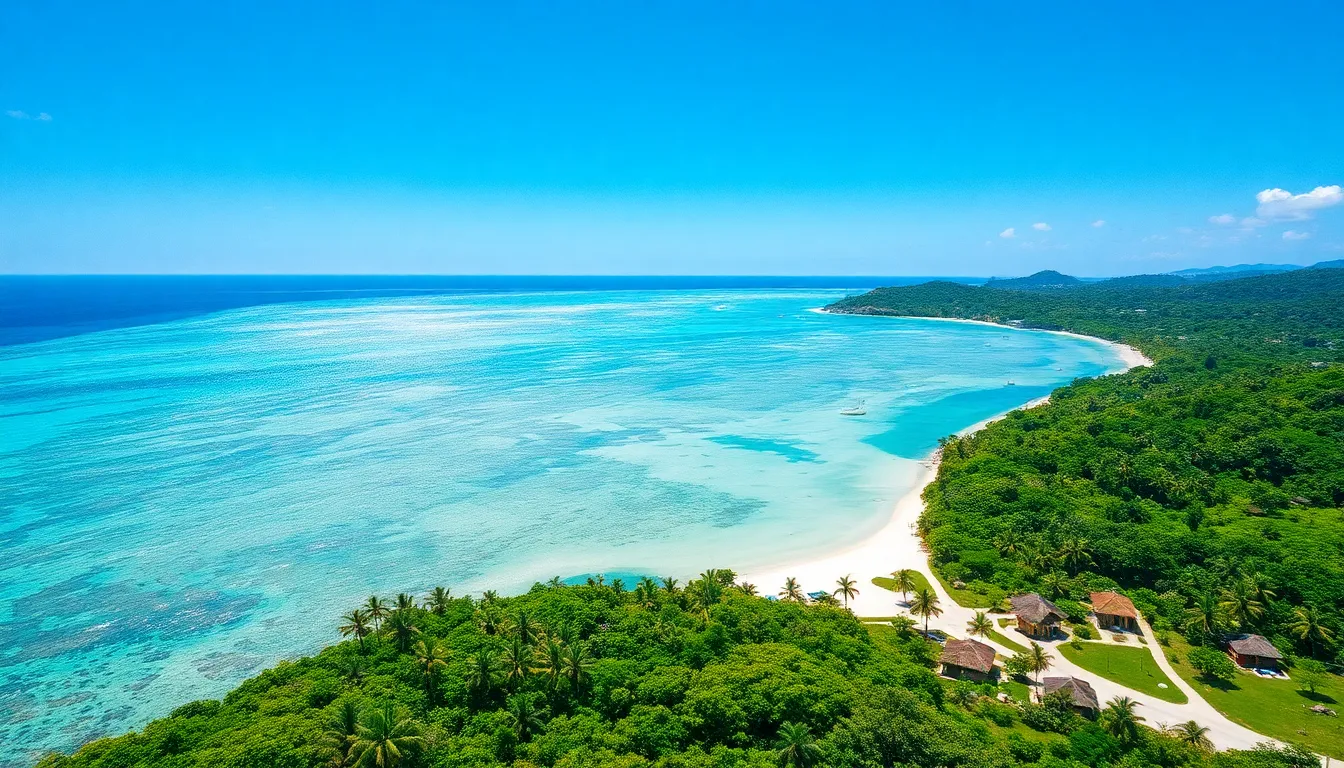Imagine waking up to the sound of waves crashing instead of an alarm clock blaring. Nomadic living offers the ultimate freedom to chase adventure and embrace spontaneity. It’s not just a lifestyle; it’s a thrilling escape from the mundane 9-to-5 grind. Who needs a mortgage when you can have a view that changes with the seasons?
Table of Contents
ToggleUnderstanding Nomadic Living
Nomadic living represents a lifestyle choice that prioritizes mobility and exploration. Individuals embracing this approach seek freedom from permanent locations and routines.
Definition and Concept
Nomadic living refers to a lifestyle where individuals or groups move regularly rather than settling permanently. Many nomads travel across regions or countries, often utilizing transportation methods such as vans, RVs, or backpacking. This way of life allows for experiences in diverse cultures, climates, and landscapes, contributing to personal growth and adaptability. Unlike traditional living, nomads often prioritize minimalism to ease mobility. With a focus on experiences rather than possessions, this lifestyle encourages moments of adventure and connection with nature.
Historical Background
Historically, nomadic living has roots in humanity’s early existence. Ancient hunter-gatherers moved in search of food and resources, laying the groundwork for this lifestyle. Pastoral societies further exemplified nomadism, shifting herds to find grazing grounds. During various periods, such as the nomadic conquests of the Mongols, extensive movements shaped cultures and influenced trade routes. Over time, modern nomads emerged, inspired by technology and the ability to work remotely. Today, this lifestyle reflects a blend of historical practices and contemporary values, attracting those seeking freedom and exploration in their lives.
Benefits of Nomadic Living

Nomadic living offers distinct advantages that contribute to an enriched life experience. Flexibility and freedom stand out as primary benefits.
Flexibility and Freedom
Flexibility transforms daily routines into personalized adventures. Remote work technologies enable individuals to choose their locations, whether by the mountains or by the sea. Freedom comes from the ability to define one’s own schedule, allowing for spontaneous travel plans. This lifestyle encourages exploration and the chance to meet new people continuously. Those embracing nomadic living often report heightened creativity and reduced stress, which stems from diverse experiences and environments.
Minimalist Lifestyle
Minimalism plays a pivotal role in nomadic living. Individuals prioritize essentials, often leading to less clutter and simpler lives. By downsizing possessions, nomads enhance their mobility and ease of travel. Living with fewer material items can foster deeper connections with experiences rather than possessions. The minimalist approach promotes sustainability, as it encourages recycling and repurposing items during travels. This lifestyle shift often results in increased financial freedom, allowing for more meaningful adventures.
Challenges of Nomadic Living
Nomadic living presents unique challenges that individuals must navigate. These obstacles can impact daily life and long-term sustainability.
Financial Considerations
Managing finances poses a significant challenge for nomads. Income stability often fluctuates, especially for those relying on freelance or remote work. Maintaining a budget becomes critical to avoid overspending while traveling. Many nomads face costs associated with housing, transportation, and visas, which can add up quickly. Emergency funds often serve as a safety net for unexpected expenses. Finding affordable accommodation also requires research and creativity, from hostels to short-term rentals. Prioritizing financial literacy aids in making well-informed decisions and planning for future travels.
Social Connectivity
Establishing and maintaining social connections proves difficult for many nomads. Frequent movement affects relationships, as friends and family remain in fixed locations. Building new connections while traveling can feel overwhelming. Activities like joining local groups or attending events foster social opportunities. Utilizing technology, such as video calls and social media, keeps relationships alive across distances. Cultivating friendships with fellow travelers helps create an immediate support network. Balancing solitude with social interaction enhances the nomadic experience, ultimately contributing to personal growth and enrichment.
Tips for Successful Nomadic Living
Successful nomadic living requires strategic planning and adaptability. Following these essential tips enhances the experience.
Essential Skills to Develop
Adaptability stands as a crucial skill for nomads. Learning to adjust to new environments quickly enables smoother transitions. Communication enhances relationships with locals, fostering deeper connections and cultural understanding. Financial management also ranks high. It helps track expenses and budget effectively while on the move. Time management skills aid in balancing work commitments and travel adventures. Researching destinations beforehand fosters informed decisions and reduces potential challenges. Lastly, problem-solving capabilities empower individuals to navigate unexpected situations, making nomadic living more enjoyable.
Choosing the Right Destinations
Selecting suitable destinations significantly impacts the nomadic experience. Researching each location’s cost of living guides financial decisions. Climate preferences can enhance well-being; warmer areas often attract those seeking outdoor activities. Safety ratings inform travelers about risks, ensuring peace of mind. Access to reliable internet remains essential for those working remotely. Cultural experiences vary greatly, so visiting diverse locales fosters personal growth. Proximity to communities of like-minded individuals offers opportunities for social interaction. Traveling with purpose provides unique experiences and enriches the nomadic lifestyle.
Nomadic living offers a unique blend of freedom and adventure that appeals to many seeking a break from conventional routines. By embracing this lifestyle, individuals can experience diverse cultures and landscapes while fostering personal growth and adaptability.
Though challenges exist such as financial stability and maintaining social connections, the rewards often outweigh the difficulties. With careful planning and a flexible mindset, nomads can navigate these hurdles effectively.
Ultimately, nomadic living encourages a deeper appreciation for experiences over possessions, promoting a minimalist approach that enhances mobility and sustainability. This lifestyle not only enriches one’s journey but also cultivates lasting memories and connections around the globe.



